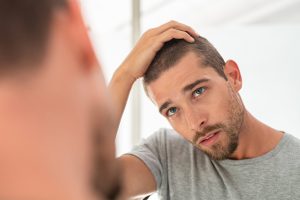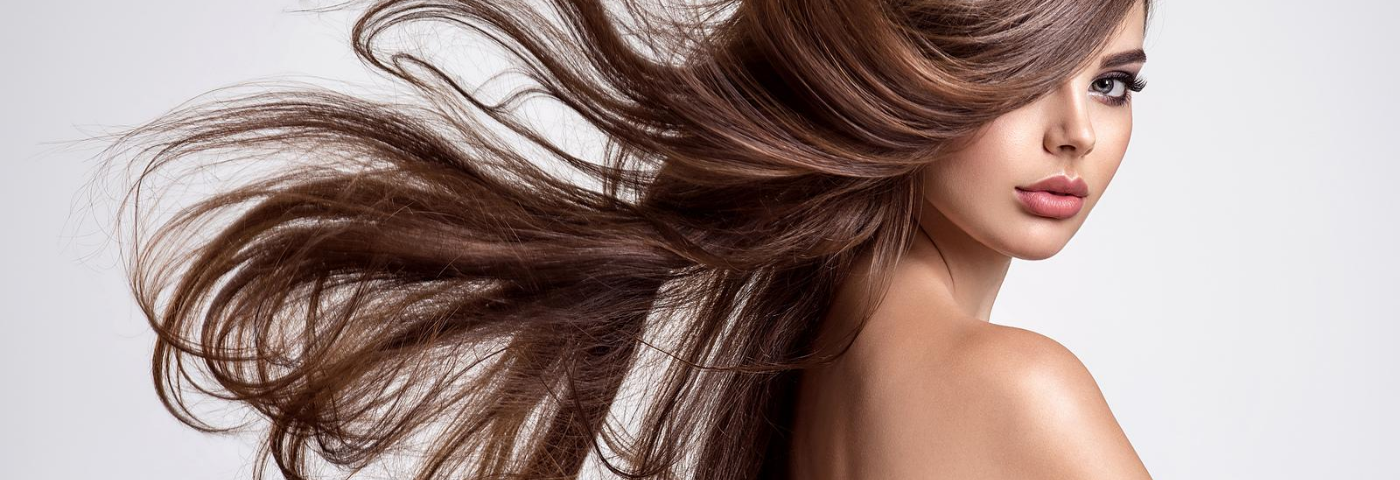The haircare sector has transformed in recent years, with brands increasing investment in research and development to formulate new, effective, and safe products that respond to consumer demands. It is partly this approach that has resulted in an increasingly lucrative market, with the global haircare sector expected to reach $116.33 billion by 2024.
With thousands of products available, consumers have an abundance of choice when it comes to shampoos, conditioners, masks, serums, colourants and sprays, making the task of standing out in an overcrowded market, critical for success.
Today, the US holds the largest market share for haircare products in the world, closely followed by China. According to Mintel, saturated haircare markets such as those in the Western hemisphere are expected to stall, while emerging markets in Asia experience significant growth. For example, over the next five years, the UK is predicted to have a CAGR of -1.1%, yet Indonesia will have a CAGR of 12.9%. The APAC region and its rapidly growing markets are therefore primed for new haircare innovations.
Scalp care
While sustainability and personalisation will continue to dominate in 2020, the haircare sector is increasingly looking to skincare formulations for inspiration. This has led to a new movement aptly named ‘skincare for hair’, which focuses on the importance of a healthy scalp. Here, consumers in the APAC region have driven the growth of this trend, with Mintel research revealing that 47% of consumers in China believe a healthy scalp equates to healthy hair.
Scalp health is determined by a variety of extrinsic factors, like air pollution, but also intrinsic factors, such as hormones and diet. An unhealthy scalp can become inflamed, resulting in sensitivity and irritation. Research by Biocosmetic®, a supplier of active ingredients to the cosmetic industry reveals that around one in two people experiences scalp sensitivity.
The company has used its experience in plant extraction and encapsulation to create ScalpEthic®, a natural product formulated from the fruit of Kochia scoparia. It is designed to soothe irritation and relieves itchy sensations by inhibiting PAR2 receptors, localised to keratinocytes in the stratum spinosum and granulosum. It provides a potent anti-inflammatory efficacy that delivers a soothing effect and contributes to a healthy scalp.
Givaudan Active Beauty, who will be exhibiting at in-cosmetics Asia this year has also tapped into this market with its recently launched K-phyto™ [SC] Camellia, crafted by Green Biotechnology. Developed in partnership with BIO-D&C Co., Ltd, a leader in plant cell culture, K-phyto™ [SC] Camellia uses Camellia Japonica – traditional scalp care and hair conditioning remedy sourced from Jeju Island in South Korea.
Bio FD&C researchers were able to isolate precious stem cells, located in the Camellia phytoplacenta, a plant tissue rich in energy and nutrients, to craft a novel plant cell extract that offers a range of scalp care benefits in rinse-off applications. Clinical studies revealed that the use of K-phyto™ [SC] Camellia boosts scalp hydration by 5.6%, reduces the number of dead skin cells by -17.6%, and soothes scalp redness, reducing the erythema by -2.4% after just one week of use. Suitable for a wide range of applications, like shampoos, hair moisturising serums and conditioners, it is recommended in doses of 1% and can be added to the water phase at the end of the formulation process, at a pH between 2 and 10, and a temperature below 40°C.
The Scalp Microbiome: scalp treatments

It is widely understood that a compromised microbiome in the gut can result in digestive issues, while on the skin it can lead to rashes or break-outs. Here, the scalp’s microbiome is responsible for regulating sebum production, and when it becomes unbalanced it can lead to itchiness, dandruff, and in some cases hair loss
Recognising the importance of a healthy scalp microbiome, skincare brand Gallinée recently announced an expansion into hair and scalp care products. The brand says the scalp’s environment differs significantly from that found on the face as it is hotter, more humid and lipid-rich, and that these different conditions result in a unique ecosystem of bacteria. Many studies have revealed a link between scalp microbiota and dandruff, with research suggesting a reduction of Staphylococcus and an increase in Propionibacterium could be an effective treatment.
To aid a healthy scalp microbiome, Gallinée launched a range of hair and scalp care products including serums and masks, which contain a prebiotic and postbiotic complex. These feed ‘good’ bacteria on the scalp, as well as adding metabolic by-products of bacteria to balance the microbiome, which results in a healthy scalp and hair.
A healthy scalp has also been proven to reduce pattern hair loss, by encouraging the growth of hair follicles. A healthy hair follicle passes three phases – the anagen (growth) phase, catagen (regression) phrase and telogen (rest) phase. A full anagen-catagen-telogen cycle can take around 3-5 years to complete, meaning that each hair follicle goes through the complete cycle 10-20 times over a normal human lifetime. However, an unhealthy scalp tends to have a shorter length of the anagen phase and a longer telogen phase, leading to a reduction in hair length and volume.
To help elongate the full cycle of hair follicles and promote healthy hair growth, Corum, a manufacturer of innovative active ingredients for the cosmetic and personal care industry, recently launched HotFlux®. The vanillyl alcohol alkyl ether derivative helps to induce natural hair growth through enhanced microcirculation and stimulation of key neurotransmitters.
It facilitates the delivery of nutrients to skin cells and hair follicles, with clinical studies revealing it successfully promotes a healthier overall growth cycle, mitigates hair thinning, and regulates a healthy scalp in just three months. It can be introduced to hair care applications for anti-loss, anti-thinning and damaged hair repairing. It provides psychological relaxation and generates a warm feeling in hair care applications such as shampoo, mask, conditioner, tonic and serum to replenish healthy hair regrowth.
Anti-pollution
In addition to intrinsic factors impacting scalp health, consumers are becoming increasingly concerned about the impact of pollution and air quality on hair appearance. This is highlighted in a report by Mintel that revealed 17% of Chinese consumers are concerned about damage from the environment, while 40% of Indian consumers say pollution impacts hair appearance. This growing concern amongst consumers opens up a big market in the haircare sector for pollution-proof products.
Many of these products focus on the scalp due to the settlement of particulate matter from the air on the skin resulting in a high level of pollutants that cause irritation and cuticle damage. A number of brands have developed anti-pollution shampoos that remove toxins from the scalp and hair.
For example, Klorane’s Anti-Pollution Detox Shampoo uses aquatic mint to remove build-up and prevent clogging, while TRESemme’s Cleanse & Renew Deep Cleansing Shampoo contains vitamin C to shield against pollutants. Other innovations include Power Drops Hydration & Anti-Pollution Booster by Oribe, which is a hyaluronic acid-infused serum that hydrates the scalp and defends against environmental pollution.
Helping consumers combat the impact of pollutants, the use of bio-functionals are anticipated to grow in hair and scalp applications as they chelate major heavy metals and decrease tryptophan degradation in the hair’s keratin. Consequently, the hair becomes less prone to external damage caused by pollution and UV. Speciality materials company Ashland is among the brands to develop an extensive line of biofunctionals, such as its Procataline ™ G2, which is a botanical extract derived from Pisum Sativum and Salvia Hispanica. It helps protect the hair from urban stress using the previously mentioned mechanisms but also shields the hair roots by increasing the production of catalase enzymes in the scalp cells which acts as antioxidant defence.
Driving opportunities for growth
The predicted growth of the haircare market in the APAC region combined with constant improvements in technology provides the personal care industry with great opportunities for innovative haircare applications. As brands increasingly adopt a ‘skincare for hair approach’, formulations that hydrate the scalp and balance its microbiome, whilst also offering anti-pollution properties, will perform well as consumers embrace the reality that a healthy scalp equates to healthy hair.
Sources:
Mintel Market Sizes
Also on the Road to in-cosmetics Asia Series…
Probiotic Skincare: topical use and supplements | Episode 6
Nutricosmetics and the vegan beauty trends | Episode 5
Ageless beauty: Mature personal care | Episode 4
Beauty & technology: ready for the future of cosmetics? | Episode 3
Gen Z: What do they look for in personal care & beauty products? | Episode 2

